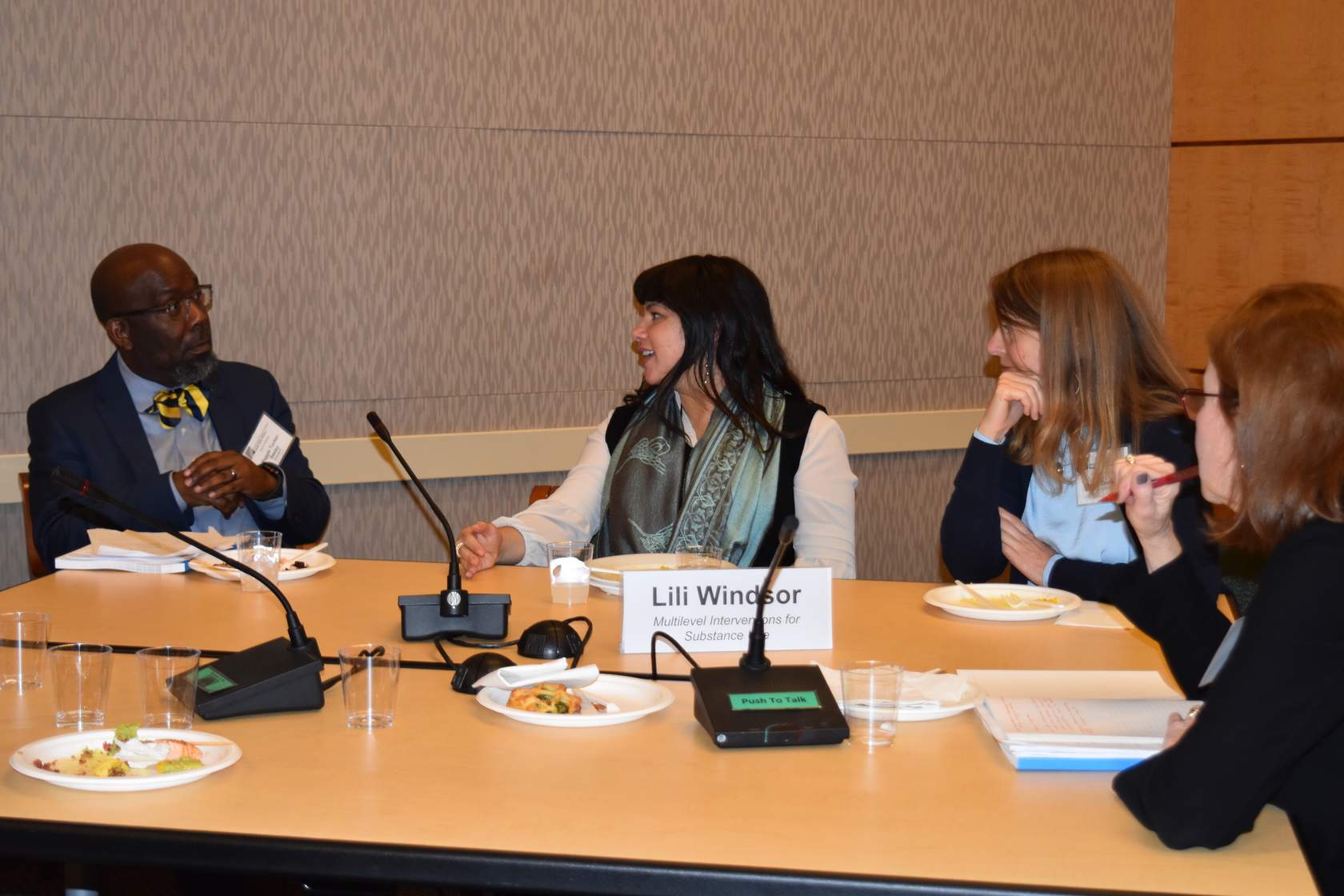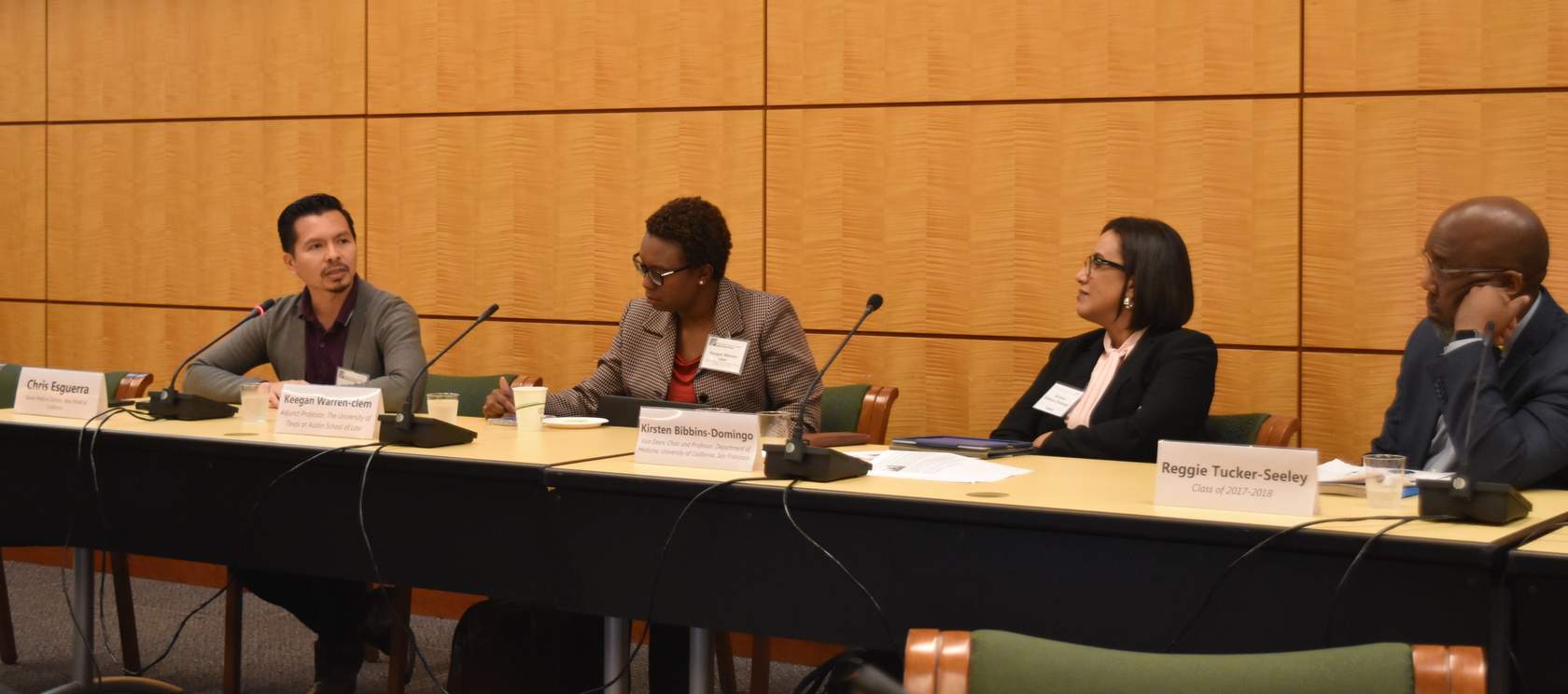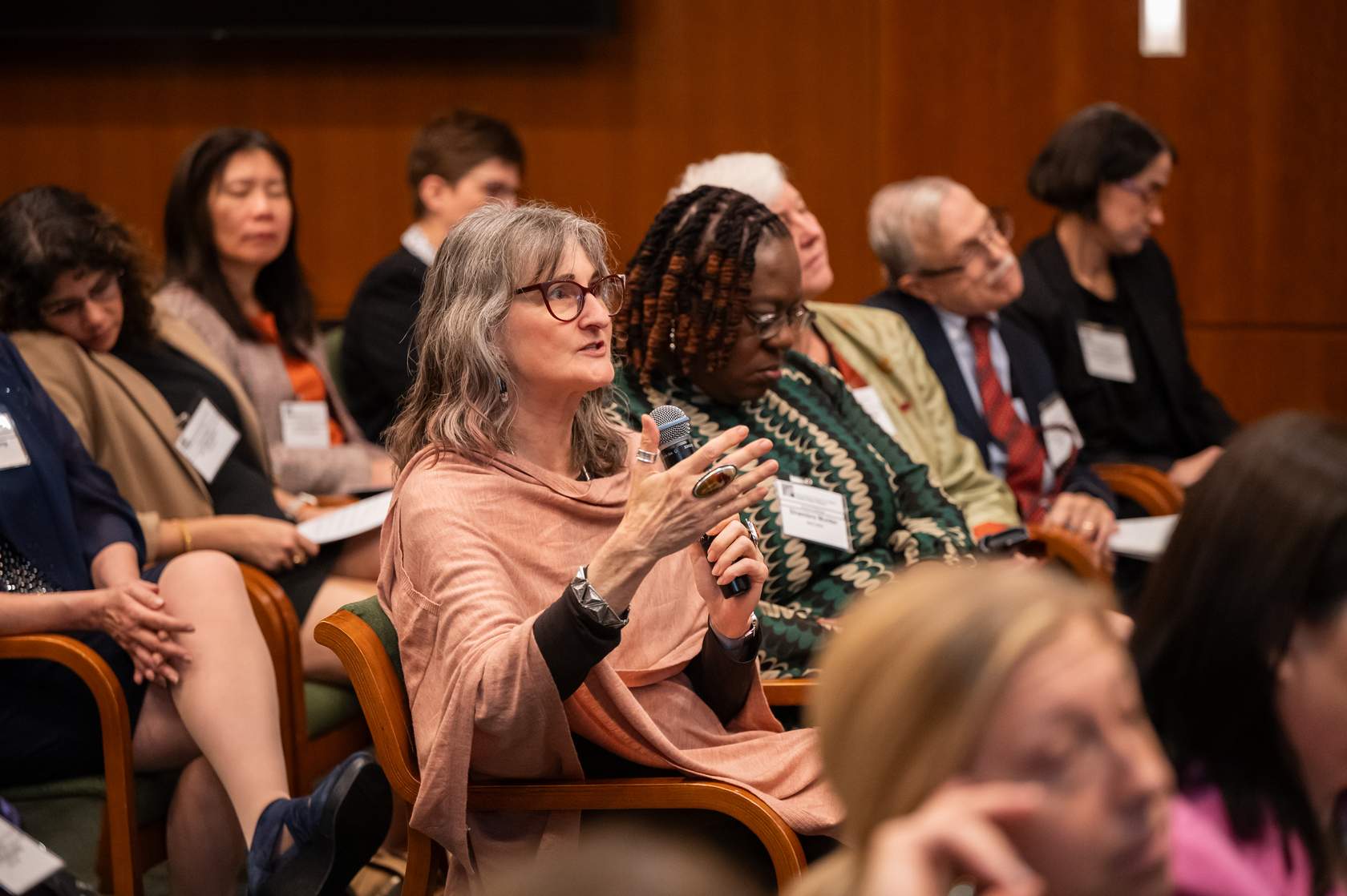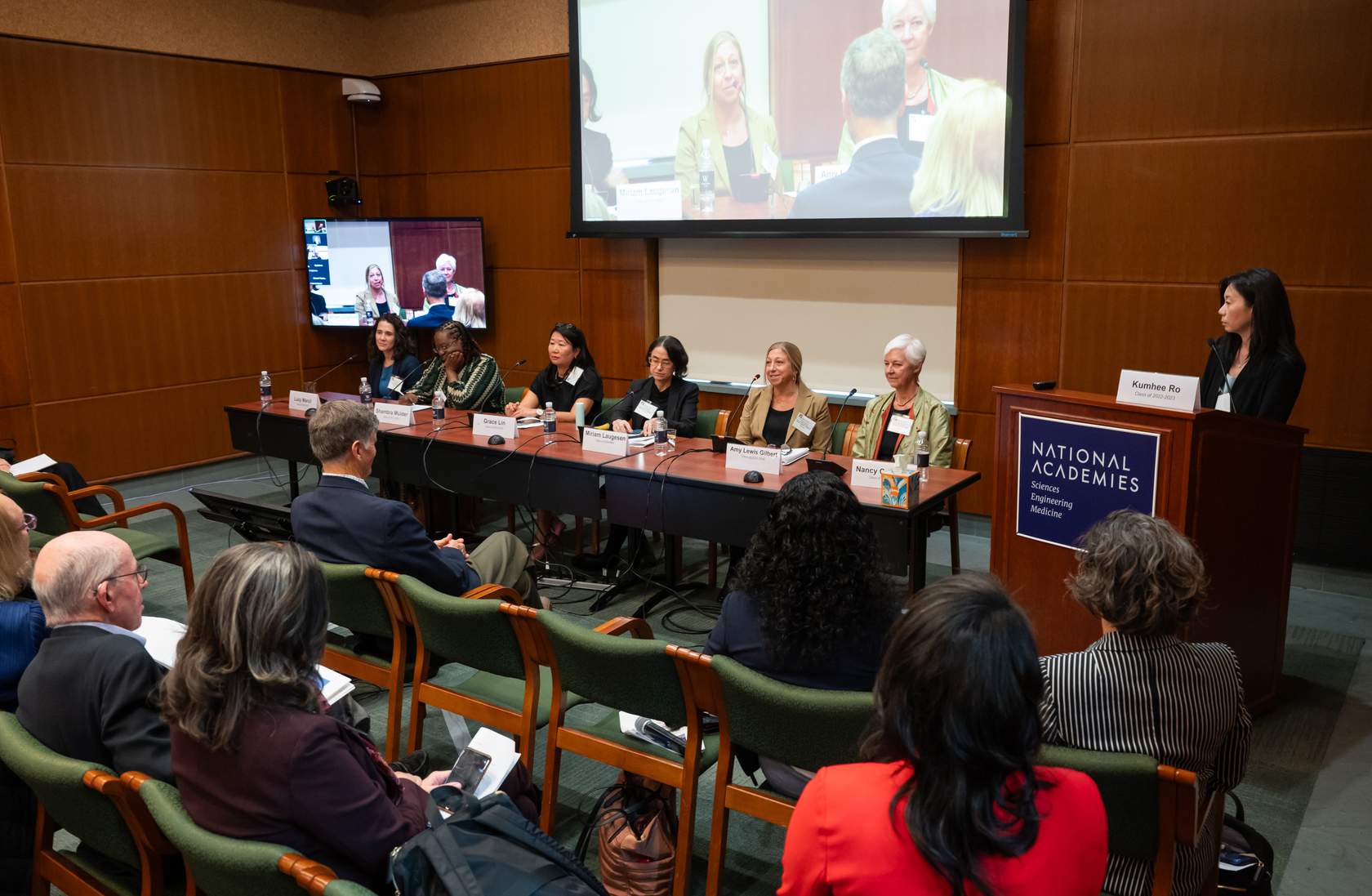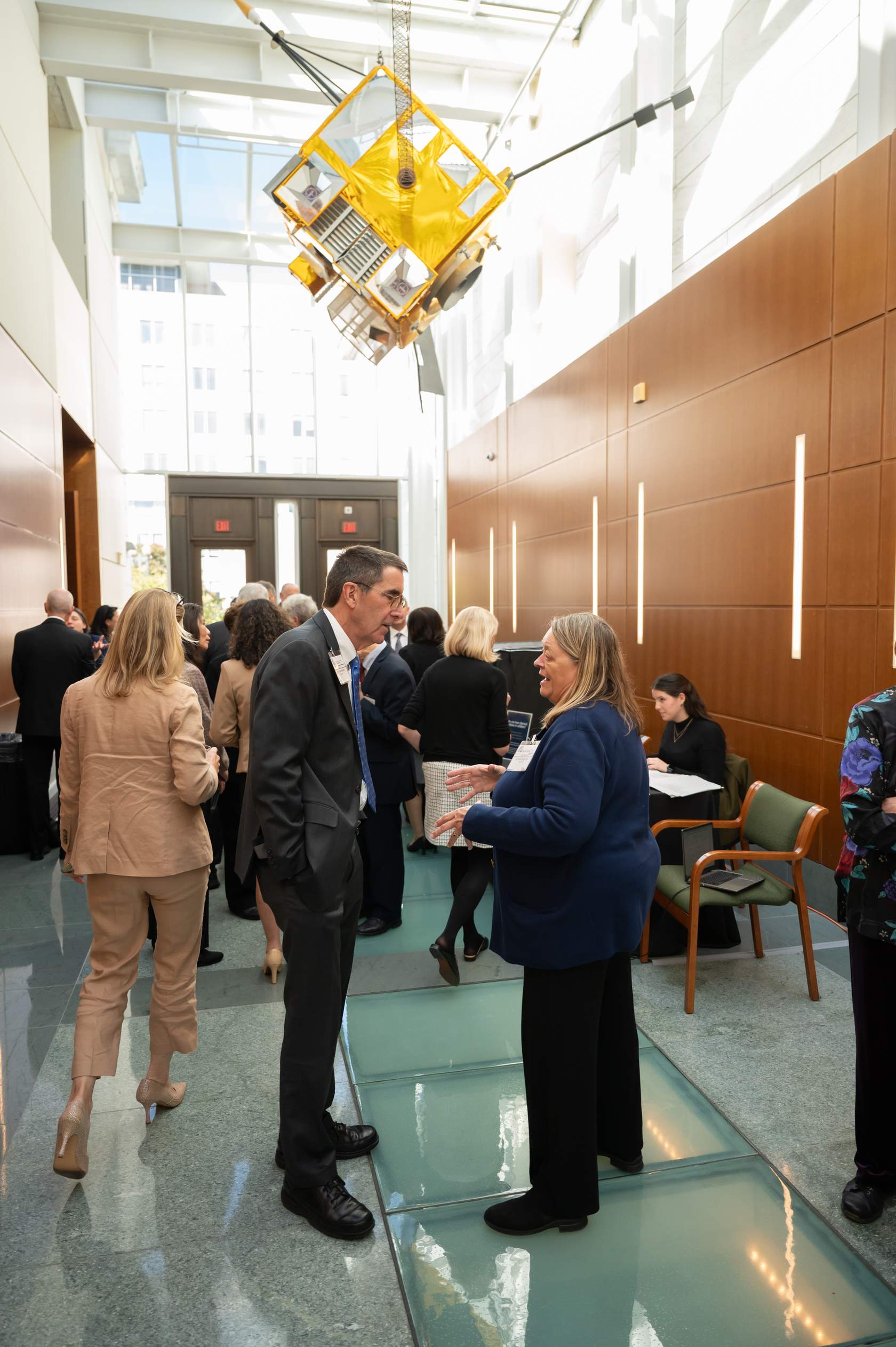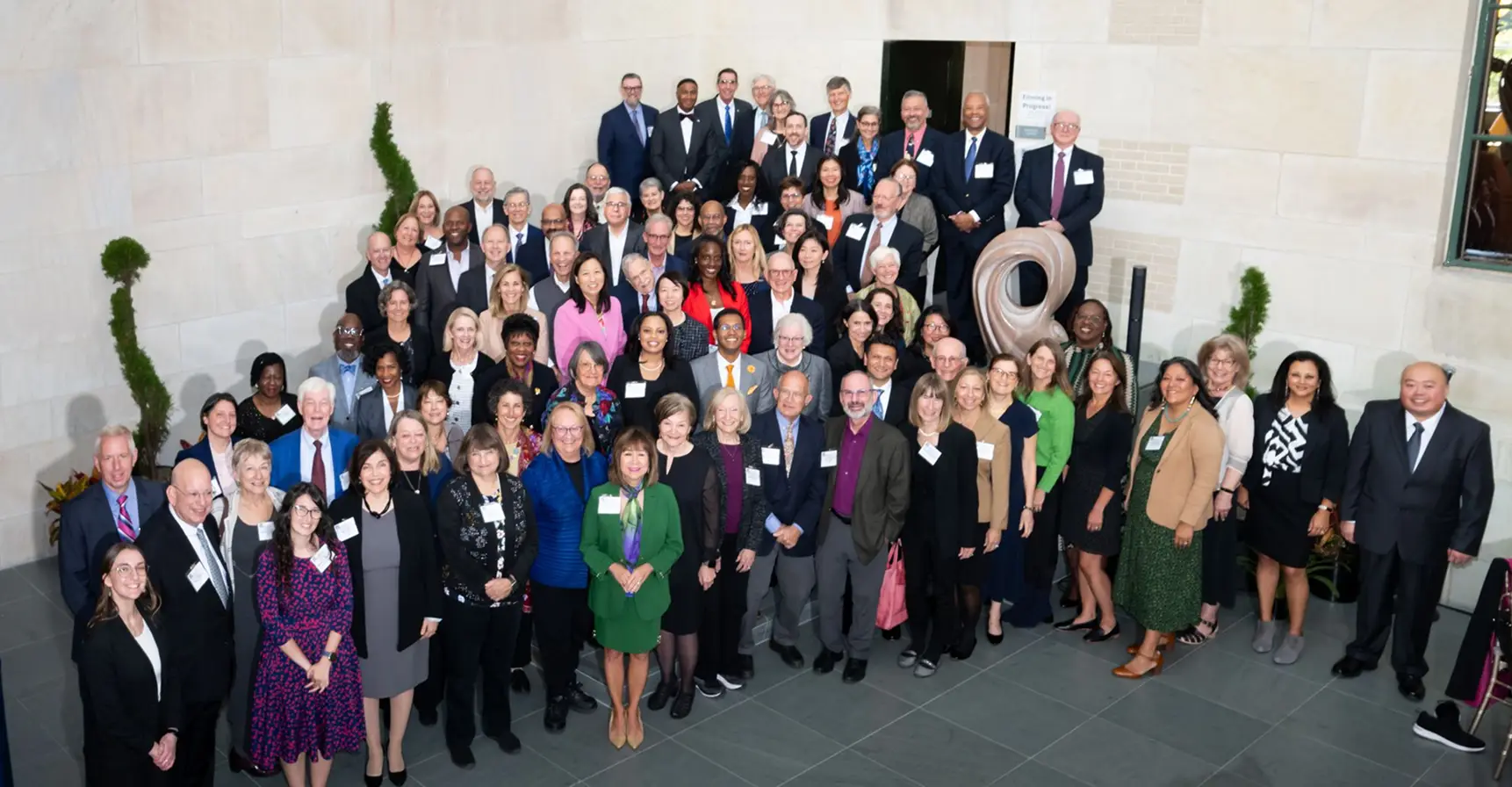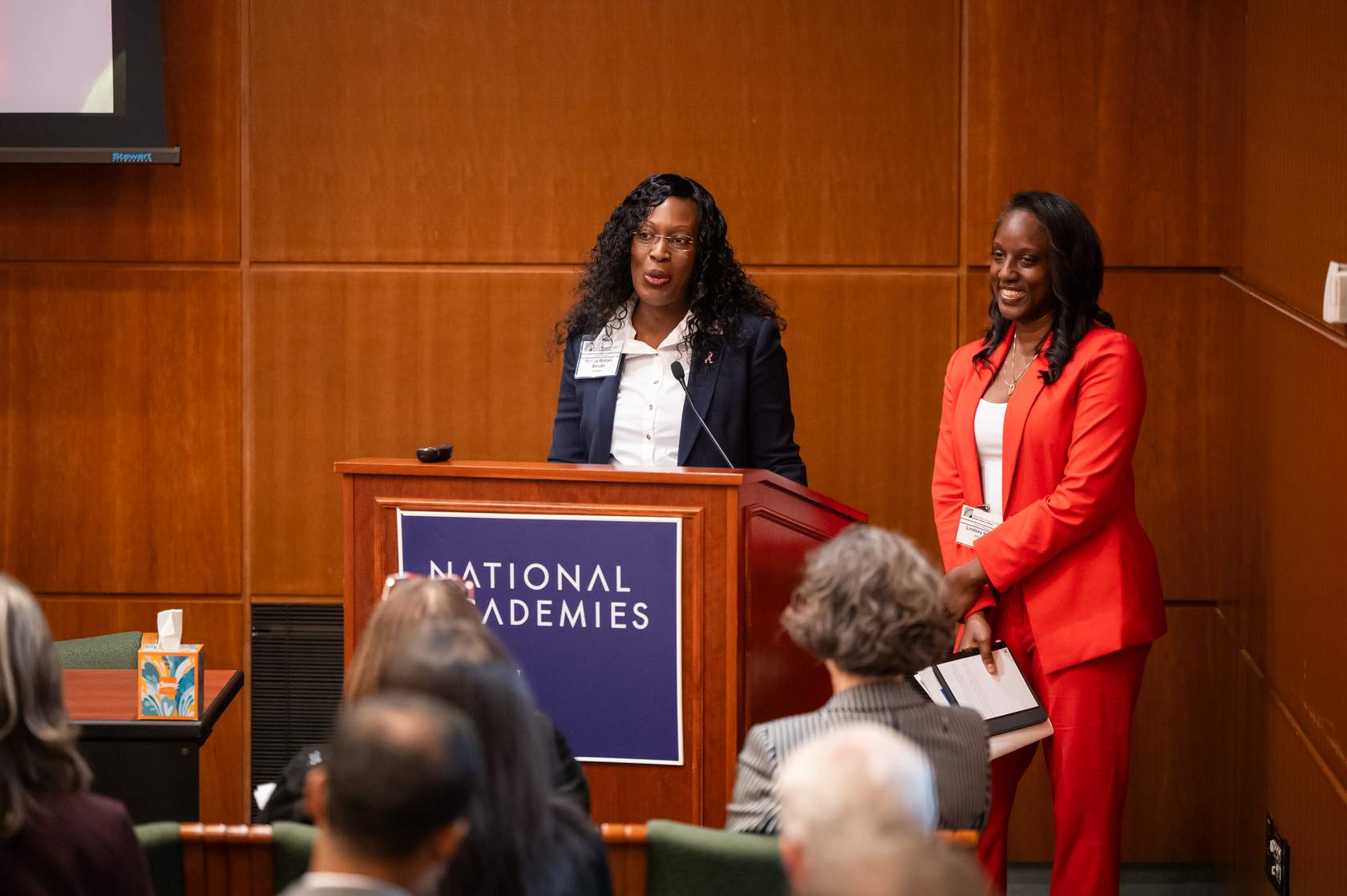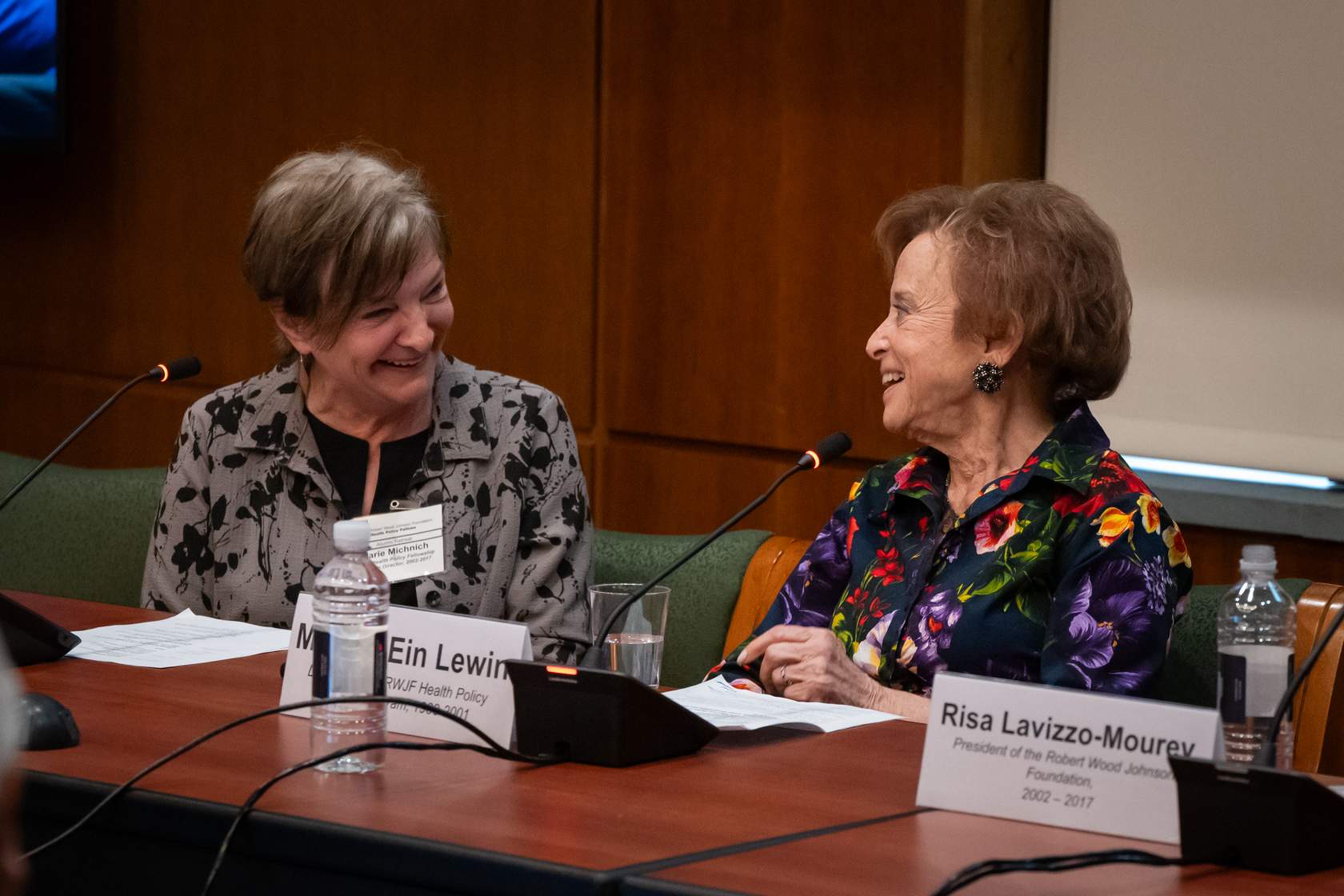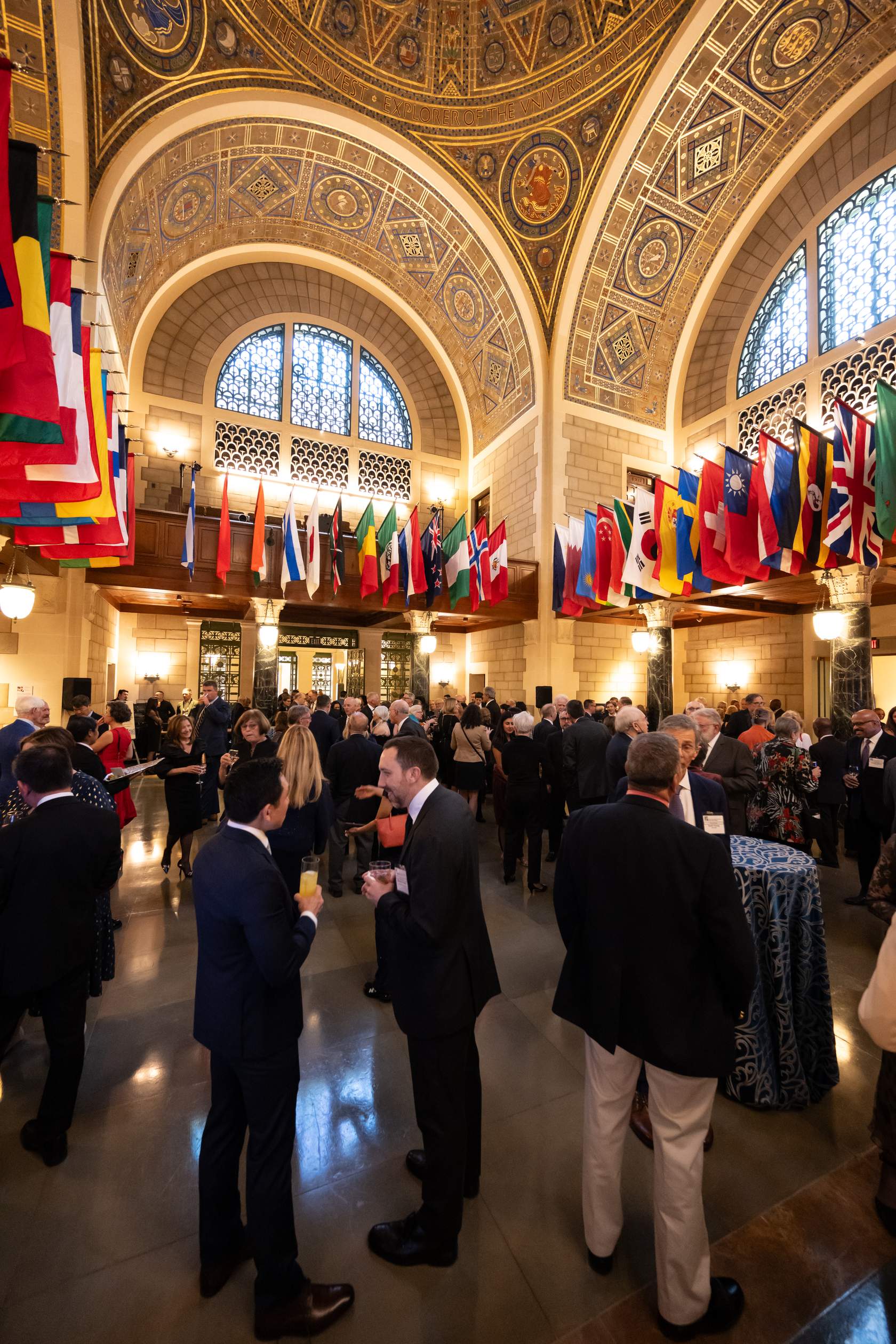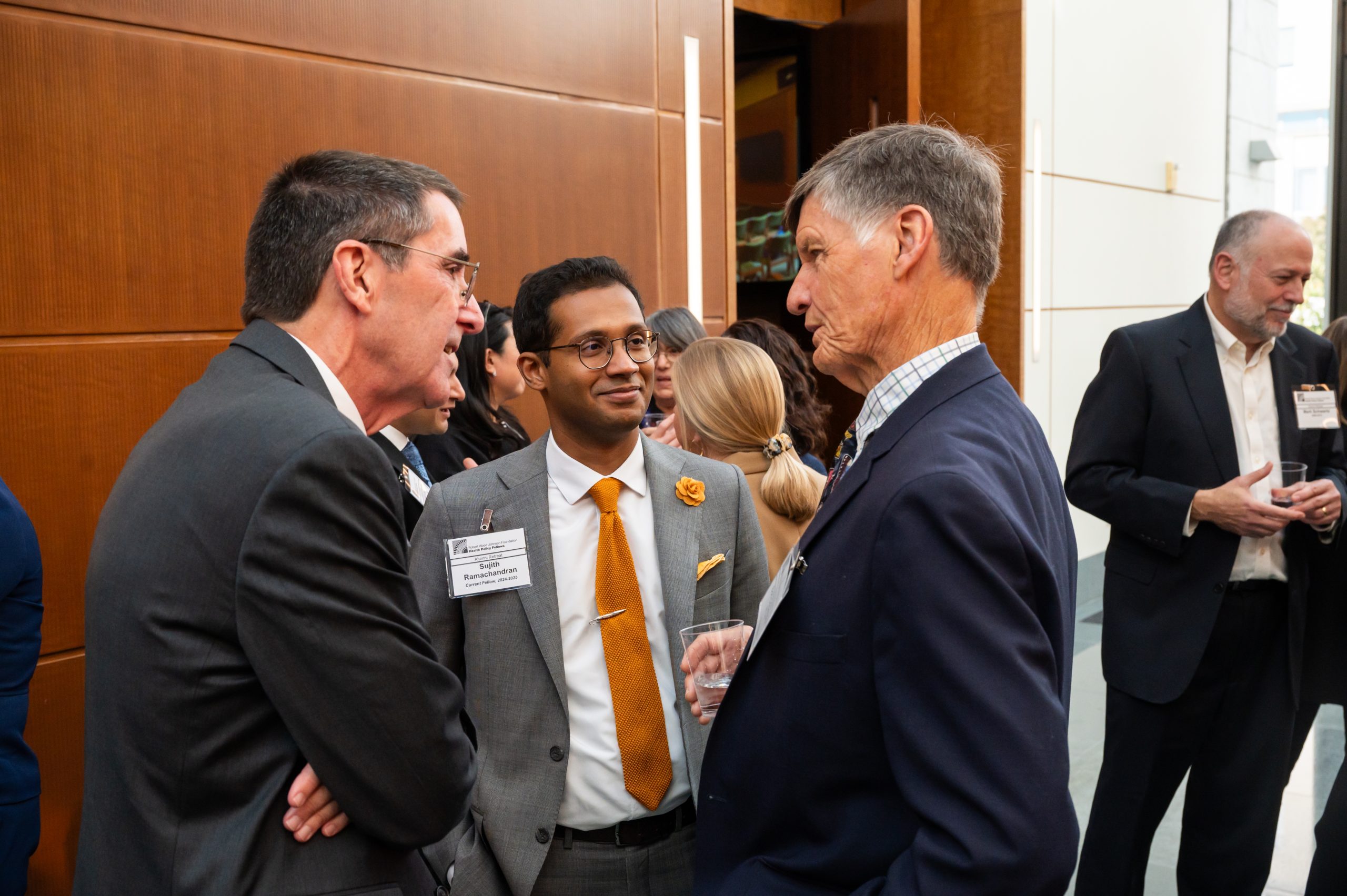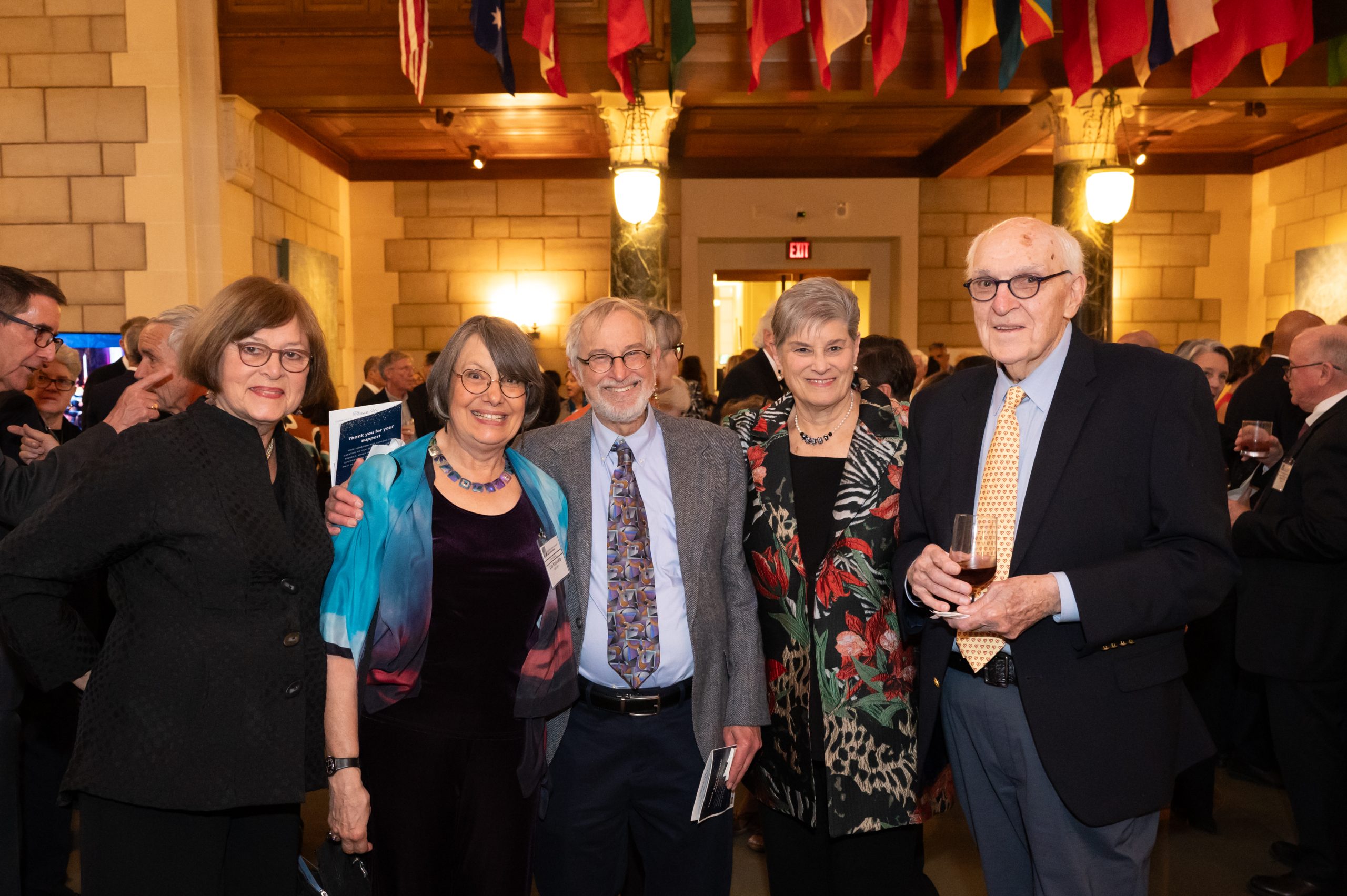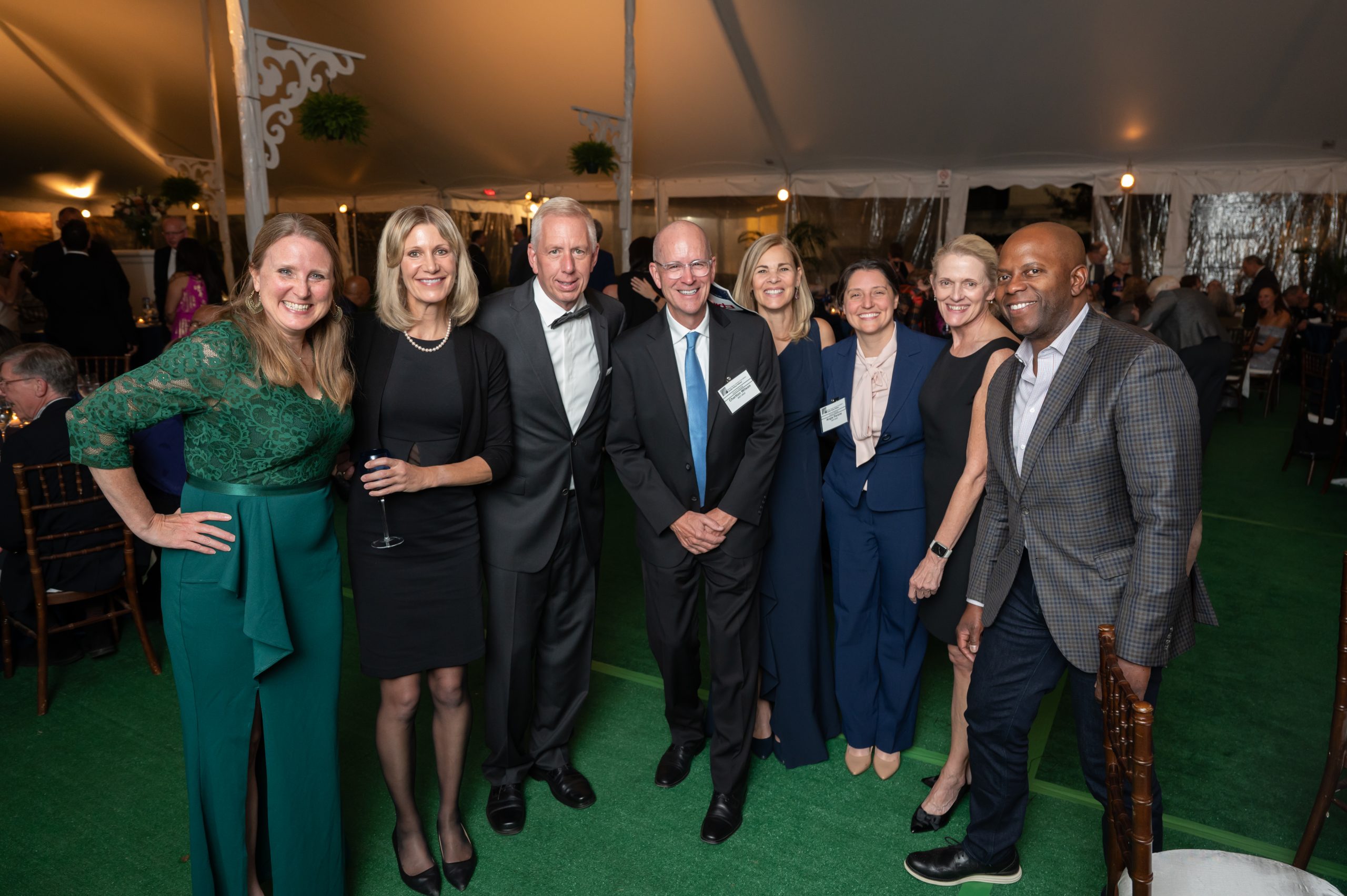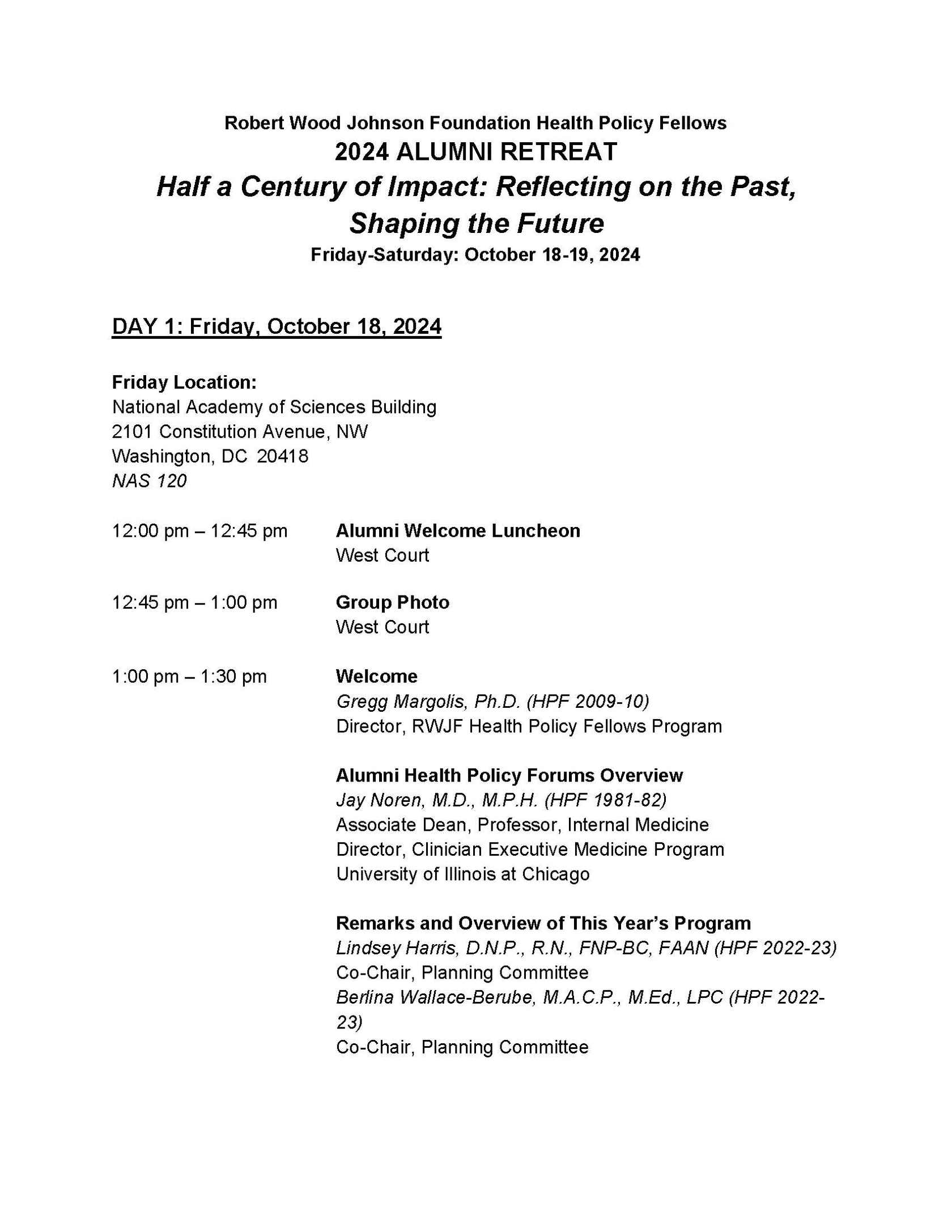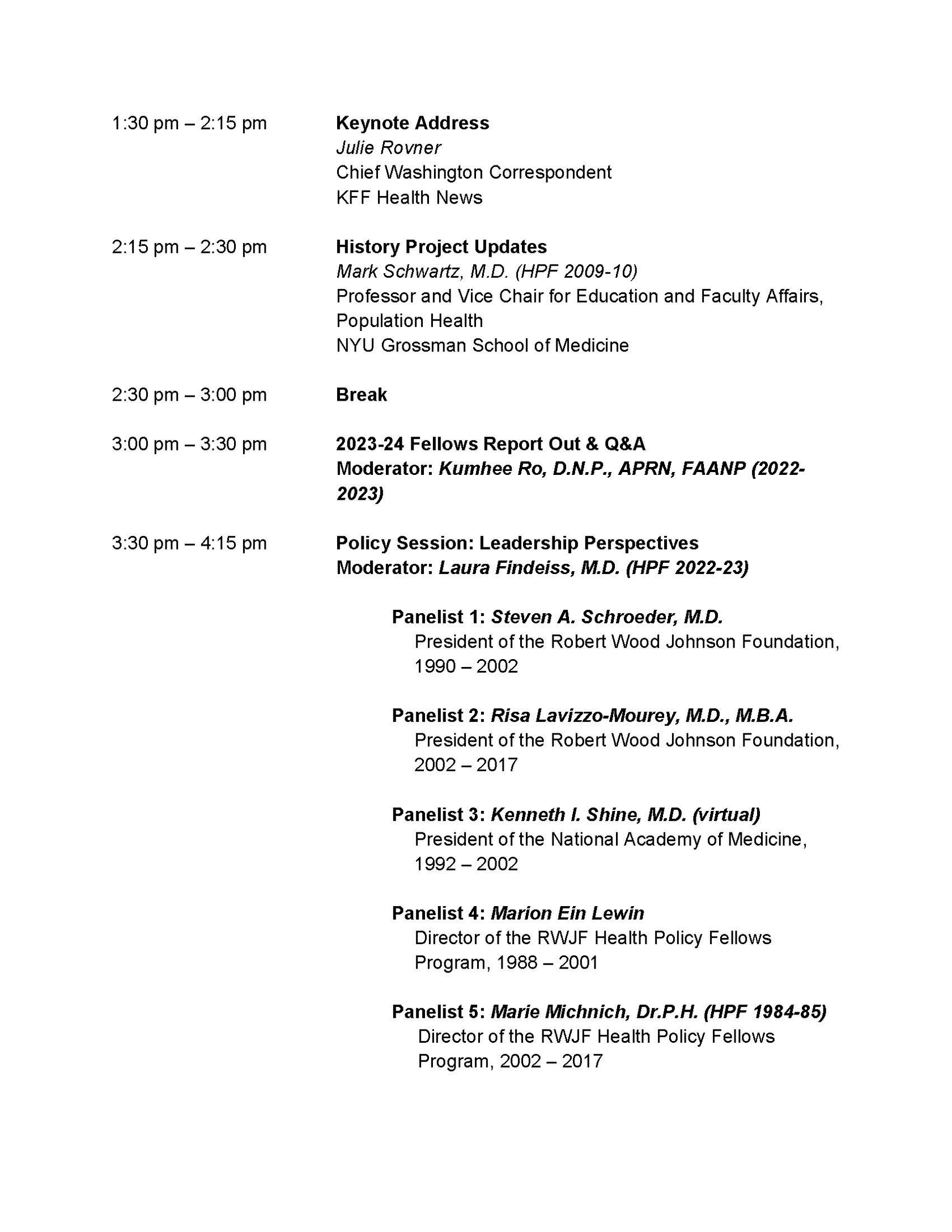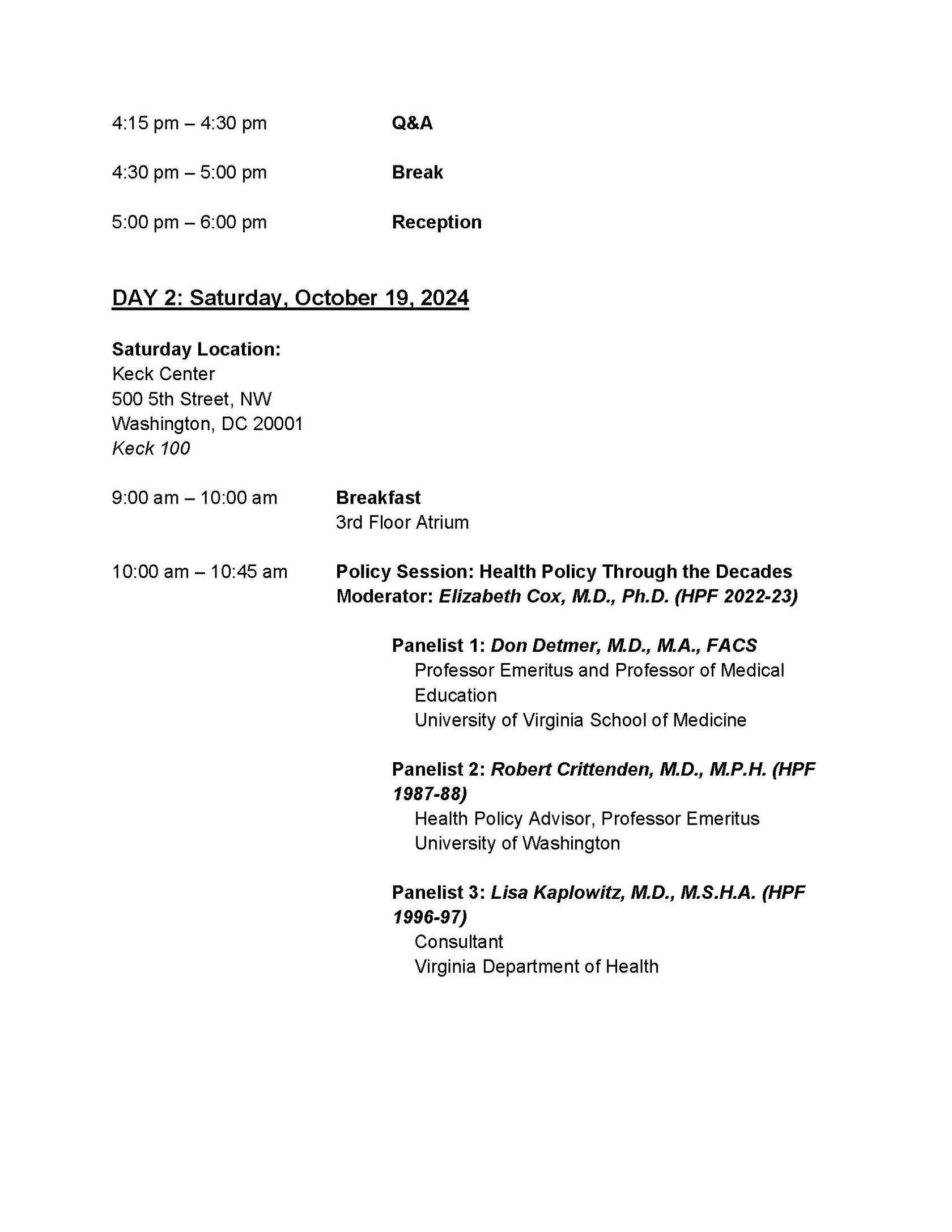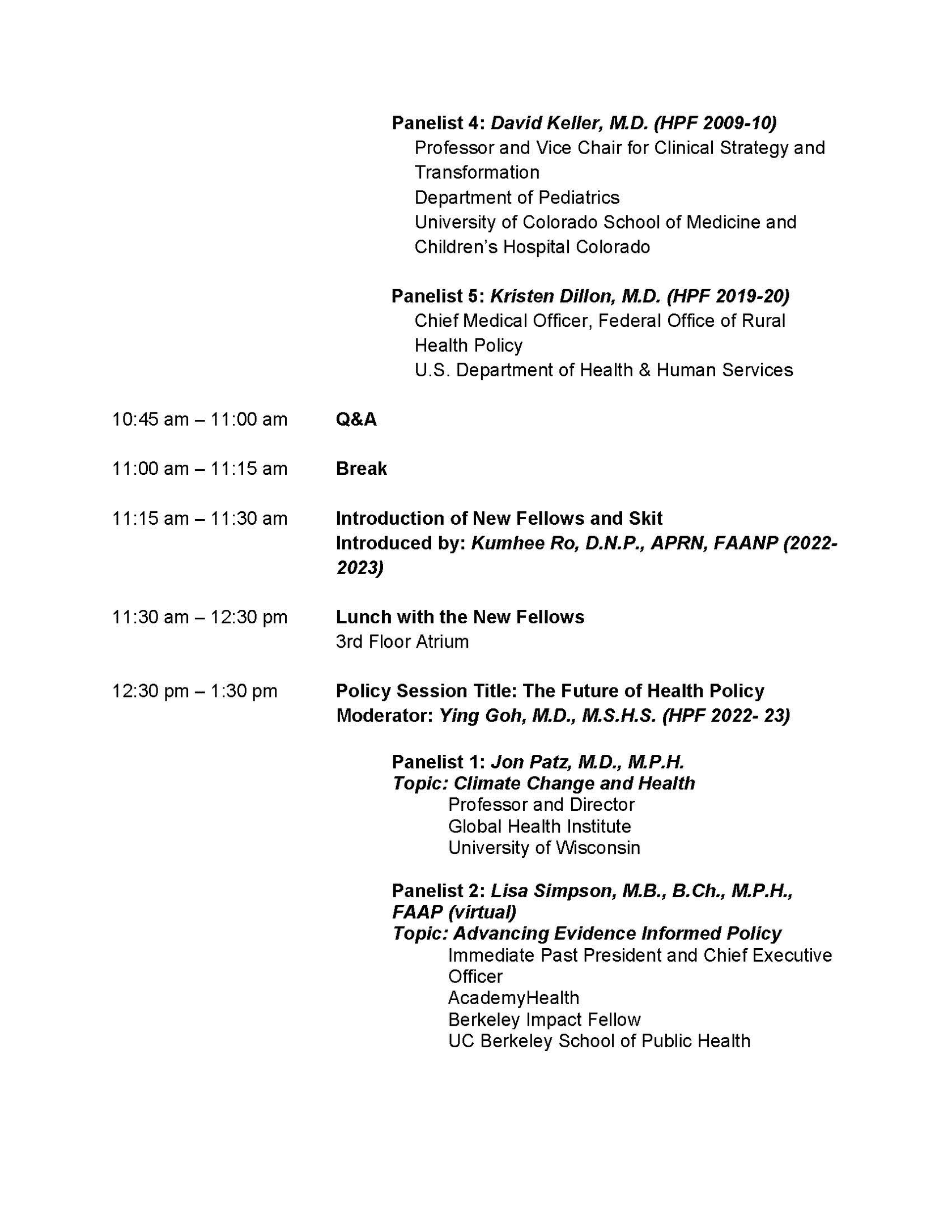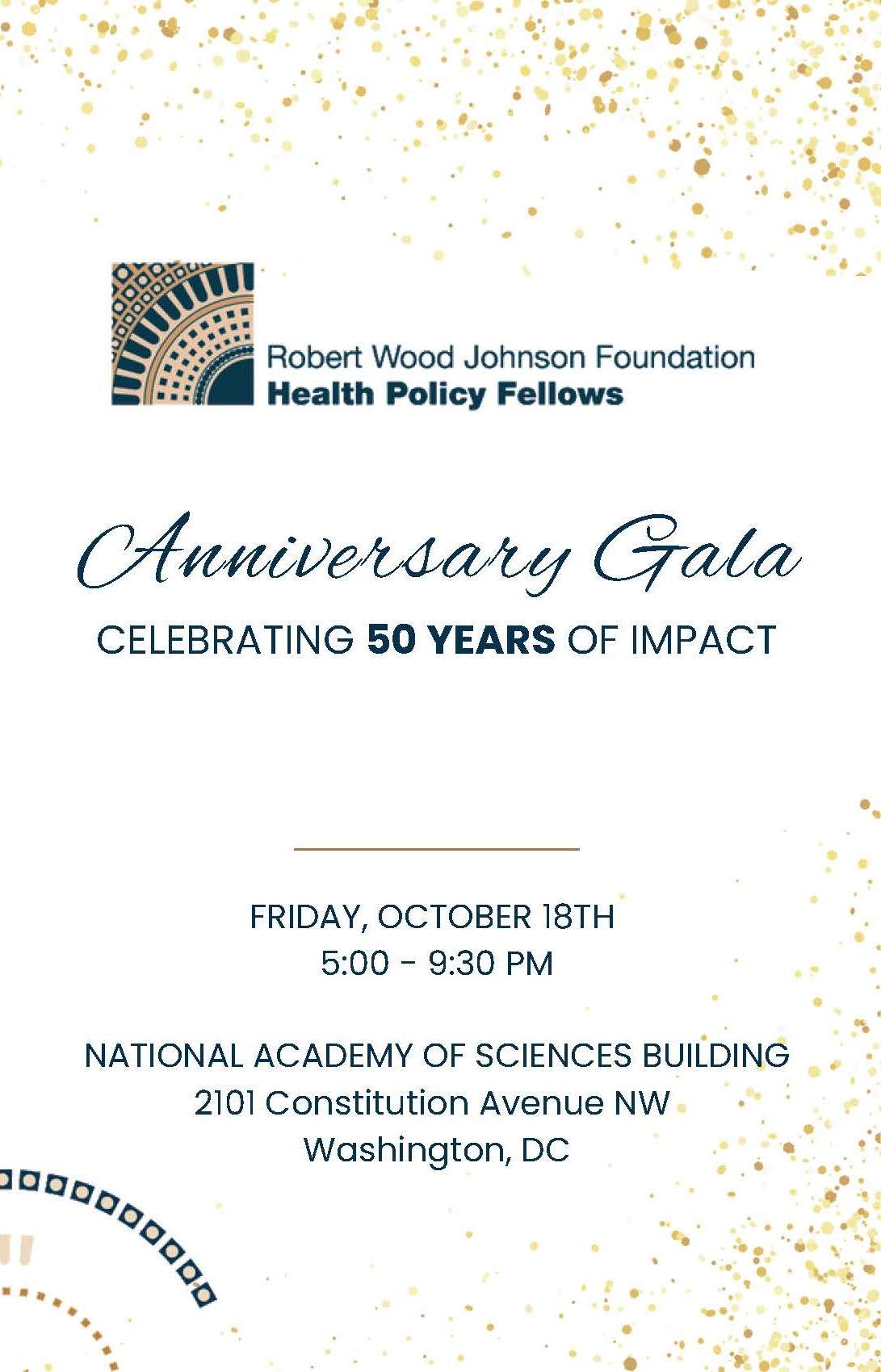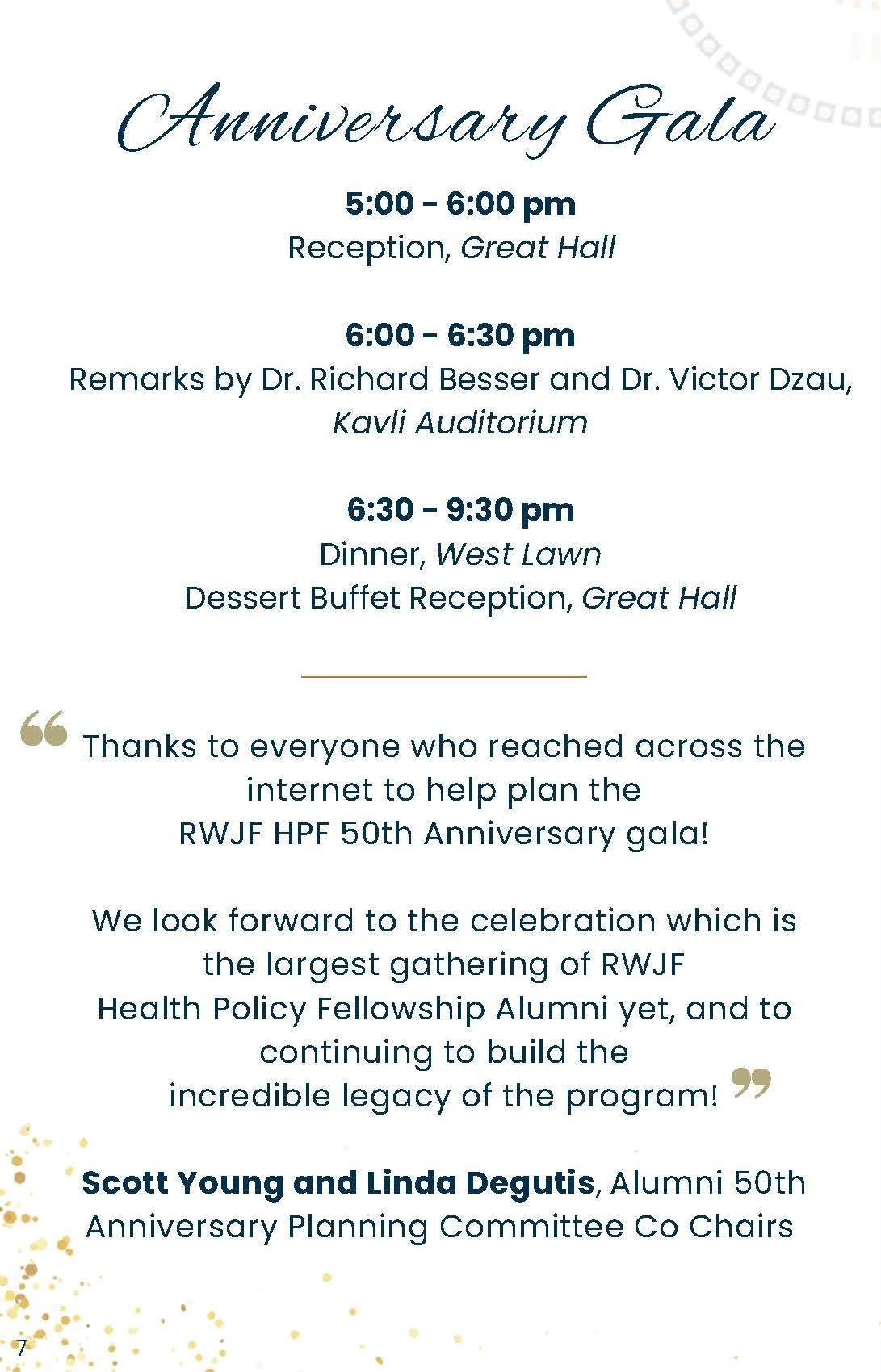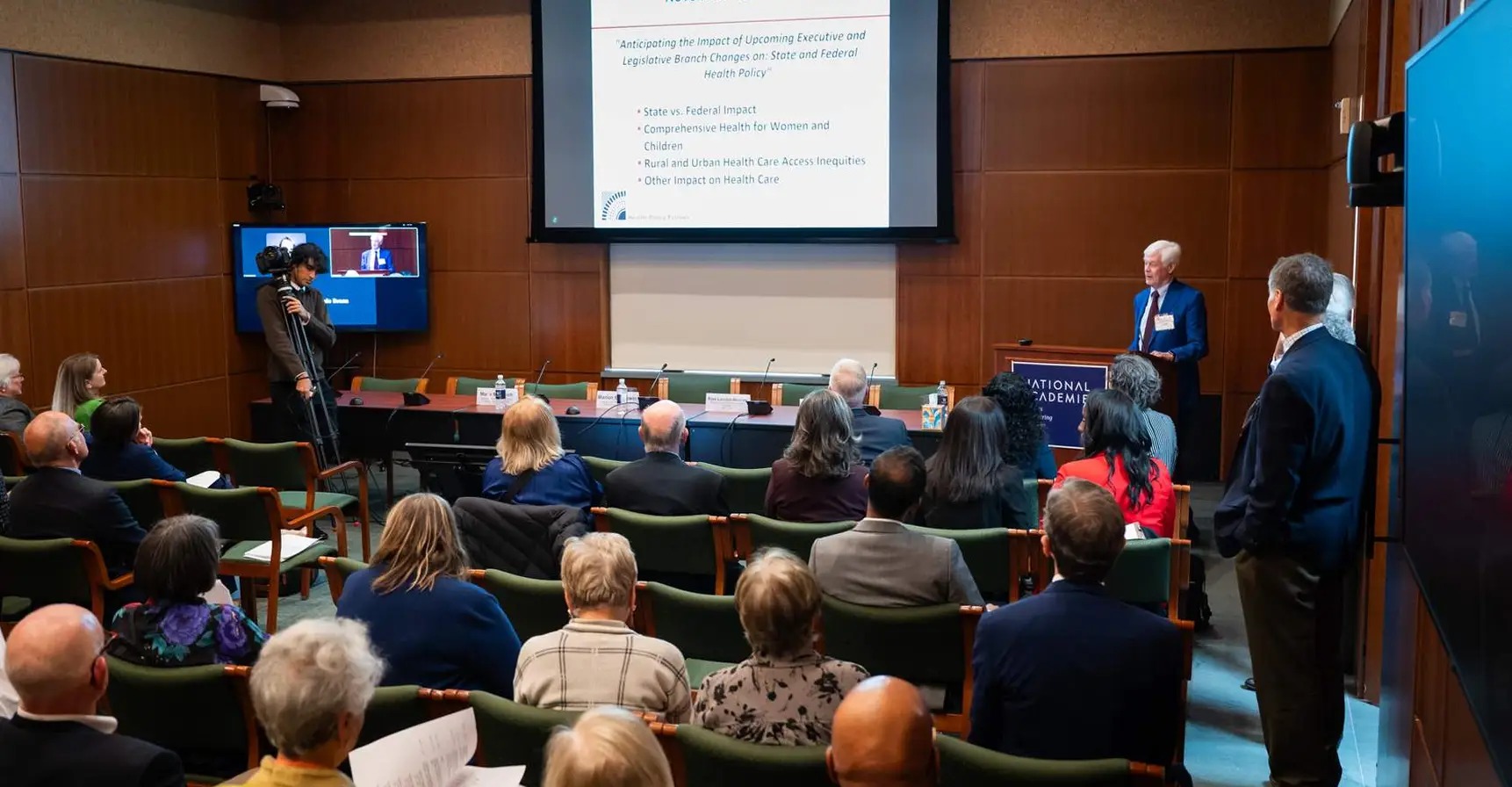CONNECTING FELLOWS PAST & PRESENT
The Alumni Network
“When fellows come in, they get immediately plugged into our extensive alumni network, which represents extraordinary people that have gone on to do extraordinary things over the 50 year history of the program. ”
–Gregg Margolis, Program Director and 2009-10 fellow
Fellows are privileged to become part of an alumni network that connects them with decades of expertise and experience in the field of health policy. More than a professional network, it is a trusted community as alumni serve as mentors, collaborators, and allies in the cause of improving the nation’s health.
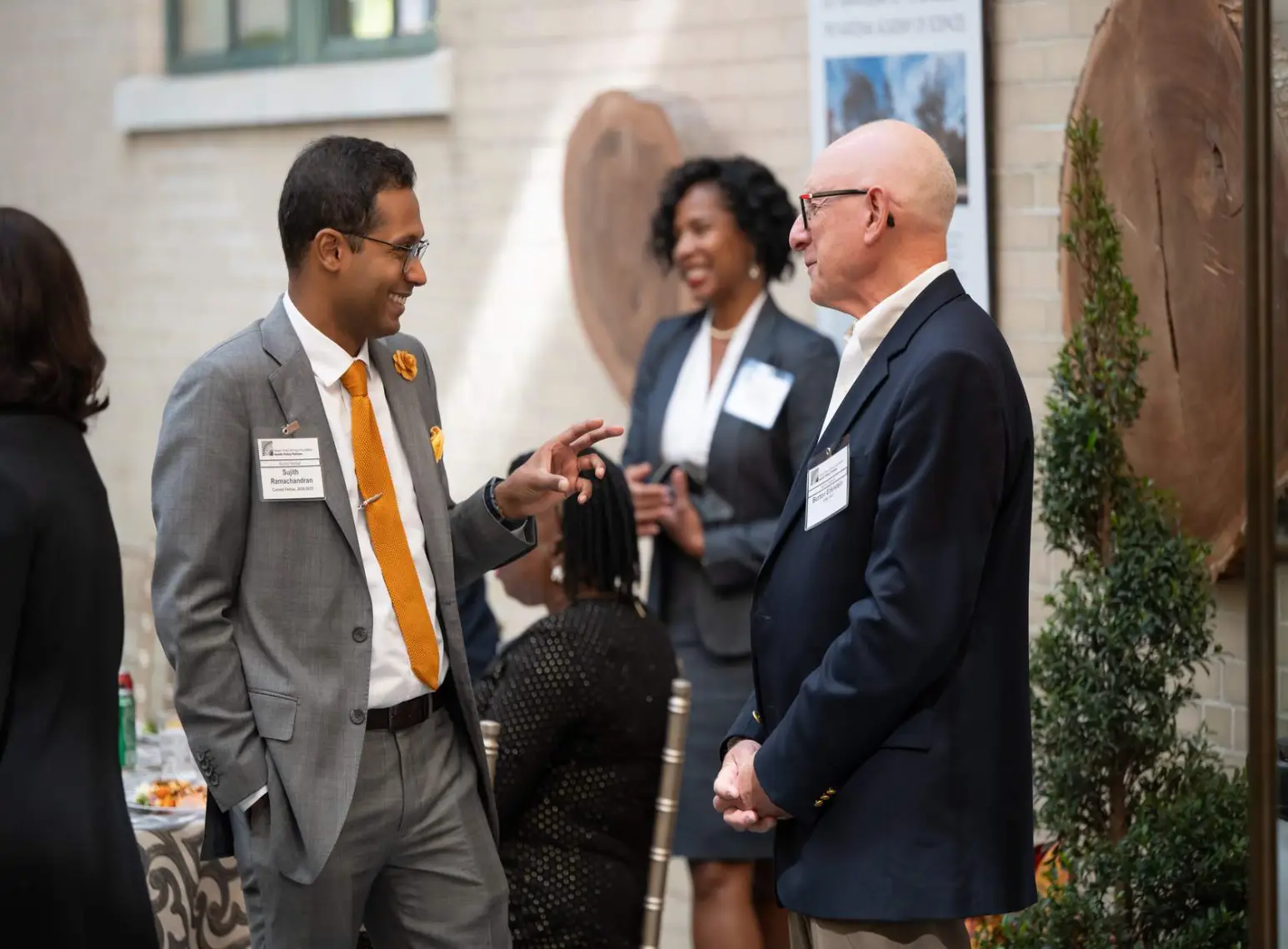
Sujith Ramachandran and Burt Edelstein
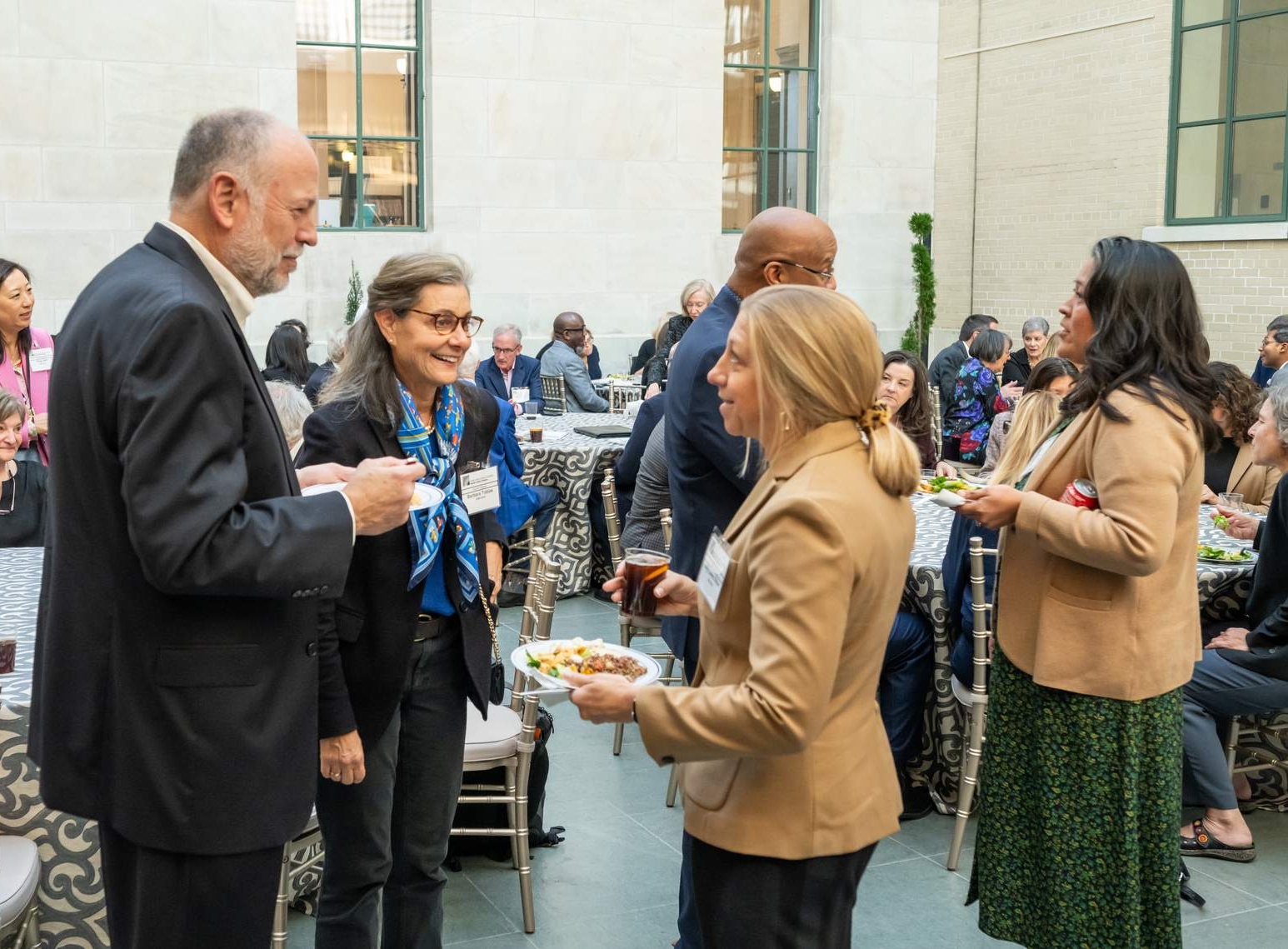
Mark Schwartz, Barbara Tobias, Amy Lewis Gilbert, Sheldon Fields, and Nicolle Arthun
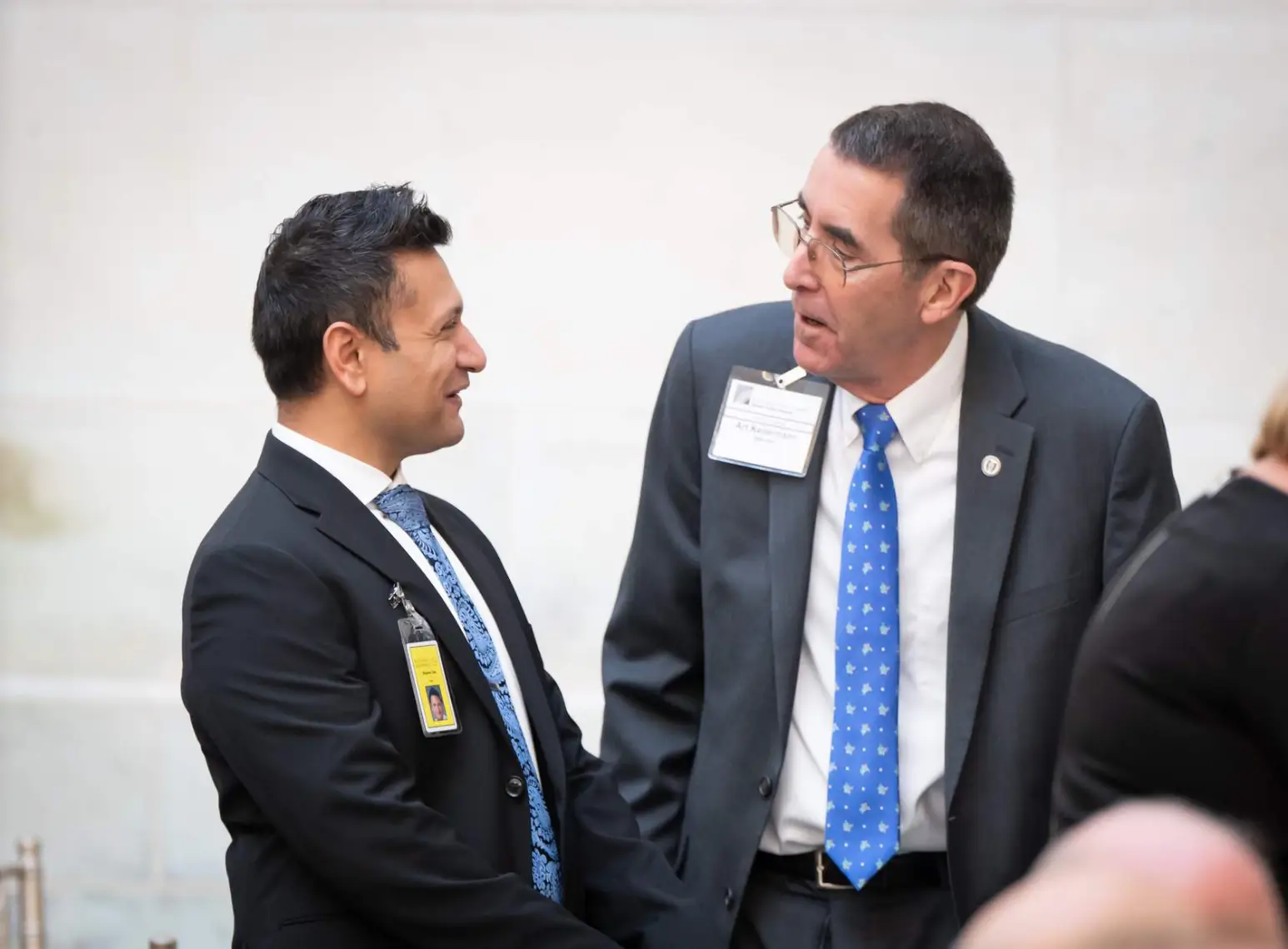
Shamie Das and Art Kellerman
“One of the strengths of this program and the orientation has been the vast network of people that we have met. I have found incredible mentors. I have found incredibly inspiring figures through this opportunity…every single interaction I’ve had with the fellows has been absolutely heartwarming, and it gives me a lot of hope for how I can use their advice and their mentorship to further and improve my own career and my knowledge.”
–Sujith Ramachandram, 2024-25 fellow
Annual Alumni Retreat Weekend
Each year, alumni return to Washington, DC for the Annual Alumni Retreat. Held in October, to coincide with the National Academy of Medicine’s annual meeting, it is an opportunity for fellows old and new to network, share ideas, and learn formally and informally from one another.
Early meetings were tacked onto the Institute of Medicine’s annual meeting and the agenda was similar to a board meeting – they reviewed the current state of the program and collected feedback for program evaluation. After attending the 1976 meeting, Dr. Frederick B. Glaser (1975-76 fellow) wrote to Program Director Richard L. Seggel with his suggestions for future meetings:
“After I returned, I had the following thought, which I pass on to you for whatever it may be worth. I found the initial exercise with the former and new fellows to be not entirely satisfactory. In thinking about it, I came up with the following idea. The main reason it was not satisfactory was that it was not sufficient; that is, we did not have the opportunity to see enough of each other and to exchange ideas. Nor was there enough time to get caught upon everything that has been happening (and, it appeared, a great deal had been happening, both on the Hill, in the Executive Agencies, in the thinking of the Board of the Programme, in the IOM, and so forth). Moreover, this situation will grow worse, at least arithmetically with the addition of six new fellows each year, and probably geometrically in terms of the pace and complexity of events and especially if there is a change of administrations. So I thought I would suggest, quite irresponsibly and without regard to the fiscal consequences, that what will be needed in the future will be our very own annual meeting; that is, a meeting for the Fellows and former Fellows, all by itself….You will see, I think, that there would be ample material for an agenda. I also think it wouldbe great fun, and quite rewarding for all concerned. Finally, I think it would tend to provide cohesion for the group and to sharpen its direction in terms of putting what was learned during the Fellowship year to good and continuing effect….Well, see what you think. I would greatly enjoy such a function.”
Frederick Glaser’s letter to Richard Seggel
At the 1977 IOM meeting, fellows continued to express their interest in a separate meeting for RWJF alumni with presentations and workshops from their program peers. As result of this continued interest, the balance of presenters at the annual alumni retreat has slowly shifted. What was once a program of presentations from experts outside of the fellowship has become a program largely made up of presentations from the fellows, themselves. Now, not only are the fellows learning together, but, more importantly, they’re learning from each other.
50th Annual Alumni Retreat
The 50th Annual Alumni Retreat was held on October 18-19, 2024. The theme for the event was “Half a Century of Impact: Reflecting on the Past, Shaping the Future.” More than 100 alumni met to hear perspectives on leadership, learn how health policy has changed over the past 50 years, and discuss the future of health policy.
2024 Alumni Retreat Agenda
Anniversary Gala
Annual Awards
The retreat has also become an opportunity to recognize the significant contributions of the health policy fellows’ post-fellowship work.
The Lifetime Achievement Award honors and recognizes outstanding alumni who demonstrate excellence in advancing and promoting health and health policy while enhancing the careers of other fellows and alumni. As of 2025, the recipients of this award are:
- ^Marc B. Hahn, D.O., FAOCA (‘98-‘99)
- ^Jeffrey L. Geller, MD, MPH (’93-’94)
- ^Robert A. Crittenden, MD, MPH (’87-’88)
- ^Linda Degutis, DrPH, MSN (’96 – ’97)
- ^Charles "Chip" Rice, MD (’91 – ’92)
- ^Marie Michnich, DrPH (’84 – ’85)
- ^Rita Redberg, MD, MSc (’03 – ’04)
- ^Jo Ivey Boufford, MD (’79 – ’80)
- ^Karen Hein, MD (’93 – ’94)
- ^David Michaels, PhD, MPH (’93 – ’94)
- ^Oliver Fein, MD (’93 – ’94)
The Susie Nanney Culture of Health Champion Award was established in 2018, in honor of Susie Nanney, PhD, MPH, RD, a nutritionist and scholar at the University of Minnesota and beloved member of the RWJF Health Policy Fellowship Class of 2016-17. The award recognizes a RWJF Health Policy Fellow alumnus for his/her commitment to advancing and promoting a culture of health for all. As of 2025, the recipients of this award are:
- ^Wendi Gosliner, Ph.D., R.D. (‘13-‘14)
- ^Michael Painter, MD, JD ('03 - '04)
- ^Debra Haire-Joshu, PhD, RN ('03 - '04)
- ^Susie Nanney, PhD, MPH, RD ('16 - '17)
Continuing to Meet
The Beginning of the Health Policy Forum & Faculty Network
“At some of the retreats there was such great discussion about health policy…So why not take advantage of that and share our experience with everybody?”
-Jay Noren, 1981-82 fellow
Jay Noren, a 1981-82 fellow, was so inspired by his conversations with alumni at the retreats that he decided to create the Health Policy Forum. The forum meets quarterly, and a panel of mostly RWJF alumni presents on a health policy challenge topic and then opens up the floor for discussion. The forum is now held virtually, so it is accessible to all alumni, ensuring that the discussions held there can benefit the vast network of health policy professionals and fellows.
Recognizing that many of the fellows come from and return to academia, Sharron Crowder, a 2019-20 fellow, wanted to create a way to connect with fellow alumni who worked at academic institutions. She organized the RWJF Health Policy Fellows Faculty Network. Similar to the Health Policy Forum, this group meets regularly to discuss topics such as developing innovative courses, fostering interprofessional connections, and supporting academic career development specifically as it relates to connecting health policy to health care education.
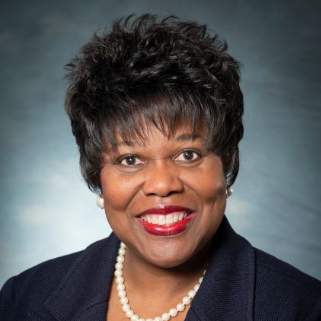
“We’ve had topics about what do you do to develop innovative courses and fellowships in what we call experiential learning, which is opportunities for courses and then opportunities outside of courses. How do you develop those innovative models for that? You know, what can we do to move forward?”
-Sharron Crowder, 2019-20 fellow
The extensive alumni network serves as a cornerstone of the program. This network fosters a community that extends beyond professional connections to create a trusted space for collaboration, mentorship, and support. Certainly, it is one of the reasons why this incredible program has been able to endure for the past 50 years. This network’s commitment to ongoing connection and shared purpose solidifies its role in advancing health and health policy, affecting changes that will positively impact the nation’s health for the next 50 years to come.

